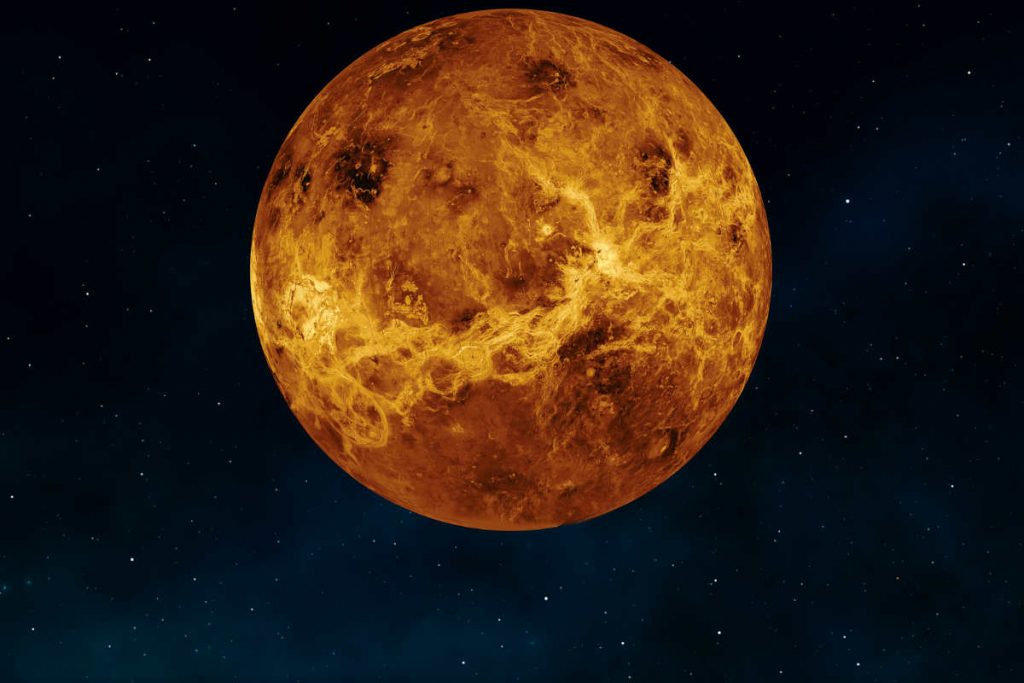While it has been suggested that water once flowed freely across the surface of Venus, this exciting theory is now called into question in a new study.
Some scientists believe that Venus was once the first habitable planet in our solar system. Although it is no longer visible now, they believe that in the distant past Venus harbored oceans of liquid water and had a climate similar to that of Earth. In a new study, researchers explore this hypothesis further. This leads to a completely different result.
twin sister
Venus is also seen as the evil twin sister of Earth. At first glance, Venus is similar to our planet in mass and size, and also consists of rocky material, contains some water and has an atmosphere. But if you look closely, you will also notice the differences. Consider Venus’s thick carbon dioxide atmosphere, its maximum surface temperature (which is well above the melting point of lead), and its layer of clouds filled with corrosive sulfuric acid. All this is in stark contrast to the conditions necessary for life on Earth.
oceans
However, according to some, this was not always the case. For example, previous studies indicated that water once flowed freely over the surface of Venus. Now researchers have once again addressed this pressing issue in a new study, trying to find out if Venus actually harbors oceans.
study
“We simulated the climates of Earth and Venus at the beginning of their evolution, more than four billion years ago, when the surfaces of the planets were still molten,” explains researcher Martin Turbet. “Given the high temperatures involved, there may have been water in the form of steam, as in a giant pressure cooker.” Using advanced 3D models of the atmosphere (similar to the models that scientists use to simulate Earth’s current climate and future evolution), the team studied how Venus’s and Earth’s atmosphere could change over time. The researchers paid particular attention to whether oceans appeared on Venus during this process.
Temperature
Unfortunately, researchers now have to answer “no” to the latter. “Thanks to our simulations, we were able to show that climatic conditions did not allow water vapor to condense in Venus’s atmosphere,” Turbet said. This means that temperatures never drop sharply, preventing water in the atmosphere from forming droplets and rain on the surface (as it did on Earth). Instead, the water remained in the atmosphere as a gas. And so oceans have never been possible.
clouds
The significant decrease in temperature was only possible if the surface of Venus was protected from solar radiation by clouds. But climate models show that clouds formed preferentially on the night side of the planet, where no light from the sun logically penetrates. “In fact, these clouds created a strong global warming effect, preventing Venus from cooling as quickly as previously thought,” concludes Turbet. Essentially, instead of serving as a shield, the clouds helped maintain the high temperatures. This has caused global warming, trapping heat in the planet’s dense atmosphere. This in turn will prevent precipitation. Thus, oceans did not form on the surface of Venus.
Soil
Surprisingly, the simulations revealed that Earth could easily have suffered the same fate. If the Earth were a little closer to the sun, or if the sun were as bright as it was today in its infancy, our planet would look very different today. Thanks to the relatively weak radiation from the young sun, the Earth has cooled enough, causing the water to condense and the oceans to see daylight.
Which scientists ultimately lead (those who suggest Venus once harbored oceans, or researchers who argue just the opposite) will have to be seen on future space missions. This year, the European Space Agency and NASA decided to undertake at least three space missions to Venus over the next few decades. One of the most important questions to answer is whether Venus has oceans. “Our results are based on theoretical models and are an important building block in answering the question about the history of Venus,” said researcher David Ehrenreich. But using our own computers we cannot draw definitive conclusions. Observations from the three future space missions to Venus are necessary to confirm or disprove our work.”

“Lifelong entrepreneur. Total writer. Internet ninja. Analyst. Friendly music enthusiast.”











More Stories
Monster Jam Showdown Launch Trailer
The European Digital Twin Ocean prototype reveals many possibilities
Instagram now lets you add a song to your account